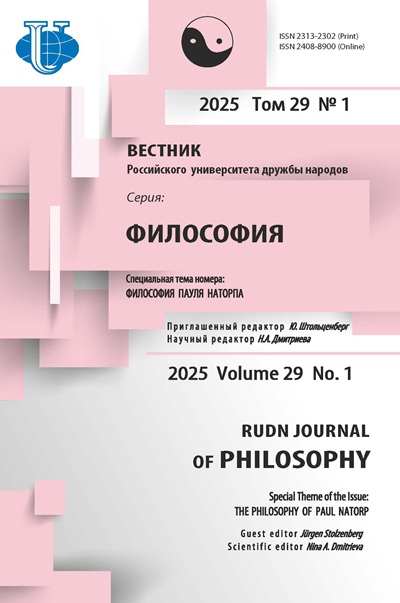Аннотация
В статье исследуется одна из фундаментальных проблем философии - проблема зла, рассмотрение которой выходит за пределы этических концепций, приобретая метафизическое значение в философии Плотина и Гегеля, что позволяет дать более конструктивное определение зла с точки зрения отмены ответственности за свои решения или действия или приверженности к ним. Данный подход к исследованию проблемы зла позволяет установить связь между взглядами Плотина на зло, как следствие возникновения косности материи, не могущей полностью воспринять и воспроизвести совершенство и полноту эйдосов, порождаемых Благом Единым; и взглядами Гегеля на проблему возникновения зла как одного из действующих моментов диалектического противоречия, отождествляемого с творческим источником мирового бытия и процесса становления. Для Плотина зло - это бесформенная материя, которая отделена от интеллекта, она не ограничена концептуальными категориями, тогда как для Гегеля, для которого рациональное является действительным, а действительное - рациональным, зло выступает как иррациональное извращение внутренней сущностной рациональности мира. Но эти идеи взаимосвязаны, поскольку зло можно трактовать и как метафизическую сущность, и как этический выбор субъекта связанный с отказом от обязательств, отрицанием ответственности за свои действия; что само по себе иррационально и одновременно ложно.

















